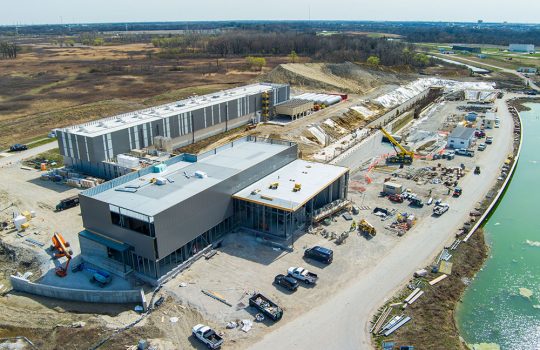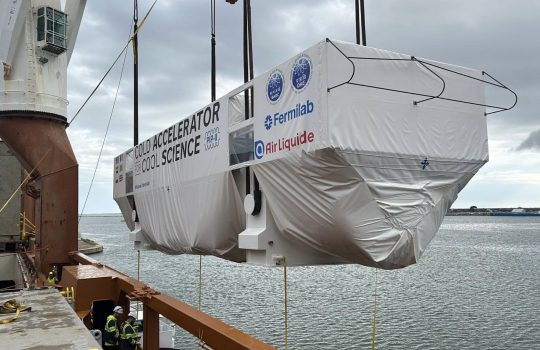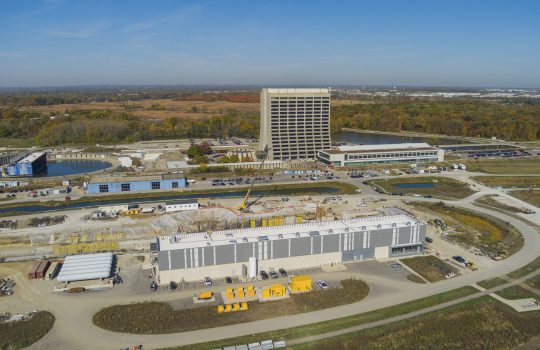The U.S. Department of Energy’s Fermi National Accelerator Laboratory signed three international arrangements in June with the National Institute for Nuclear Physics, known as INFN, the Italian research agency dedicated to the study of the fundamental constituents of matter and the laws that govern them. Under the supervision of the Italian Ministry of Universities and Research, the INFN conducts theoretical and experimental research in the fields of subnuclear, nuclear, particle and astroparticle physics.
The three arrangements include:
- a Multi-Institutional Memorandum of Understanding for the Short Baseline Neutrino Program hosted at Fermilab;
- a Project Planning Document for the PIP-II particle accelerator project at Fermilab; and
- a legally binding agreement with INFN’s National Laboratory of Frascati to develop a superconducting undulator for the EuPRAXIA advanced accelerator project.
“Our INFN partners are internationally recognized leaders in advanced particle accelerator technologies in general and superconducting radio-frequency technology in particular,” said PIP-II Project Director Lia Merminga. “Fermilab and the PIP-II project are grateful to INFN for their expertise and contributions in building a state-of-the-art particle accelerator powering the world’s most intense neutrino beam. These contributions will help drive groundbreaking discoveries in particle physics for the next 50 years.”

Fermilab Director Nigel Lockyer (left) and INFN President Antonio Zoccoli sign the three arrangements. Credit: Fermilab and INFN
Fermilab is supported by the Office of Science of the U.S. Department of Energy. The Office of Science is the single largest supporter of basic research in the physical sciences in the United States and is working to address some of the most pressing challenges of our time. For more information, please visit science.energy.gov.



